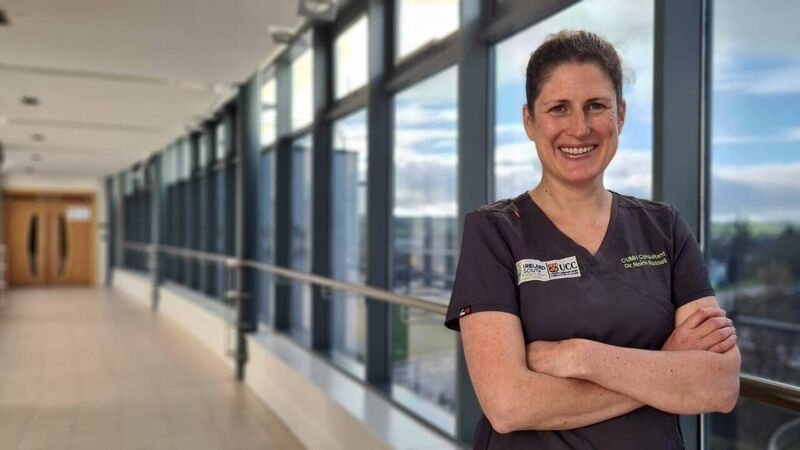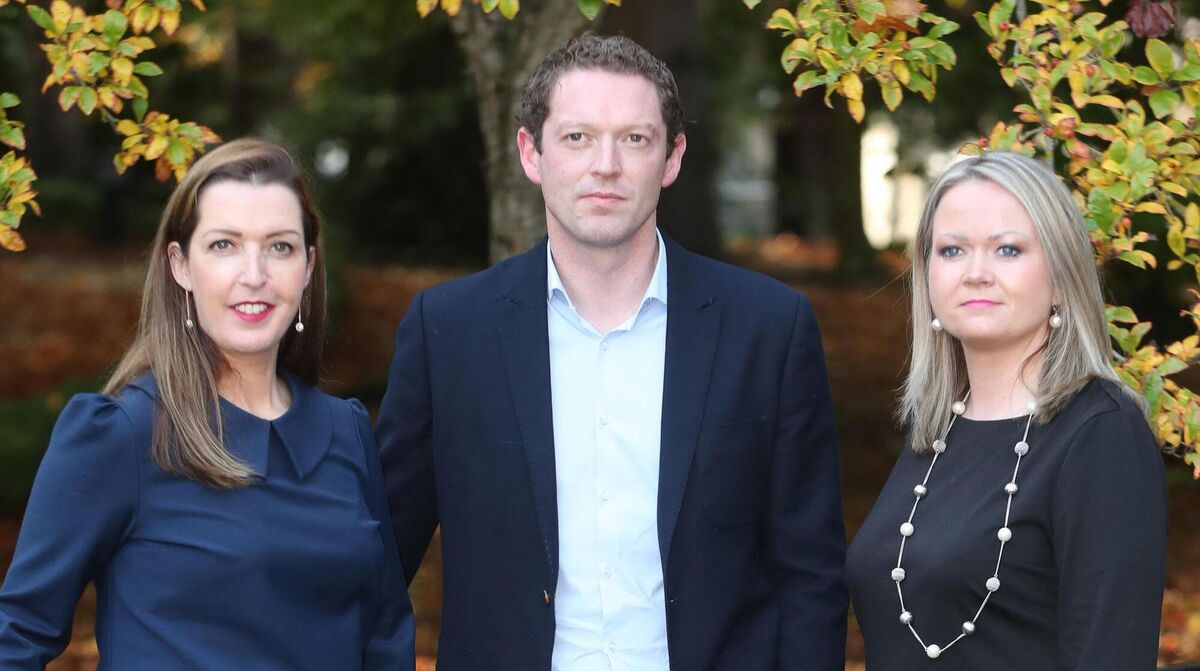Review option for cervical cancer patients welcomed as 'very important change'

CervicalCheck clinical director Nóirín Russell said the hope is to have the personal cervical review process 'up and running in the first quarter of this year'.
Women who develop cancer while part of the CervicalCheck screening programme will be entitled to request a review under changes due to be in place by the end of March.
The changes come following close engagement on the issue with advocacy group 221+ as well as patient organisations, according to CervicalCheck clinical director Nóirín Russell.
They also come after almost five years of controversy since Vicky Phelan revealed she had developed cervical cancer and that during her treatment she was not told about an audit that found her slides were misread at an earlier stage. Ms Phelan died in November.
“We completely understand and expect that women might have questions," said Dr Russell. "Our new review process, which we are calling a personal cervical review, we hope to have up and running in the first quarter of this year.”
Women can talk to their GP, practice nurse, or hospital staff about this.
“We’ve explained it all in advance, so they all know this is coming. And women might come directly to us as well,” she said.
Plans are being formulated to include the review option in screening leaflets in order to increase awareness.
In relation to uncertainty around disclosure, Dr Russell said: “We only ever do a review like this after a woman is diagnosed with cancer.
Dr Russell was criticised last year when she was reported to have said, during a taped conversation, that some women with cervical cancer were using the courts in the hope that “they might get some money”.
“A formal restoration of trust process is also underway at the moment with the women and families of the 221+ group, and it’s important to give space to that process,” she said.
“We have learned so much from advocates working in this space of rebuilding trust, and I’m proud of what we have collectively achieved over the past two years. I hope that we will continue on that journey in the work we still have to do.”
Lack of open disclosure in health services broadly has been an issue since the Health Information and Quality Authority highlighted it in a 2013 report on the death of Savita Halappanavar.
Dr Russell defended reforms in CervicalCheck, saying the way in which it communicated around expired smears in 2021 should be reassuring.
“We were open and transparent. We said, 'look, this is what has happened, this is why it happened, these are the steps we are putting in place to make sure it doesn’t happen again'.
“That is a living example of how people are going to know we are going to tell them if something has happened.”
Limited oversight of foreign laboratories' processing of tests was also highlighted in the 2019 review of CervicalCheck by Gabriel Scally.
Changes have been implemented, said Dr Russell, along with the December opening of a national laboratory at the Coombe Hospital.
“We want the National Cervical Screening Laboratory to get up to 10% of samples.
“The goal over the next five to 10 years is they will become the principal provider for the programme.”
In the meantime, tests continue to be processed by Quest Diagnostics in America.
Dr Scally’s final review in November said this is “safely provided” but highlighted the need to recruit and replace senior staff in Ireland to oversee quality assurance. He found that at least two providers are needed.
Since 2020, CervicalCheck uses a test which looks for HPV (human papillomavirus) instead of a cytology test.
This common viral infection in the reproductive tract leads to the majority of cervical cancers.
“HPV is a better test, we will have less false negatives with HPV,” said Dr Russell. “We know that cytology picked up 15 out of 20, we know HPV is a better test because it picks up 18 out of 20.
"That is really good, the false negative rate is reduced, but it is not going to be zero. There are still going to be people who are not picked up.”
She said that last year "about 13.5%" of the population that were screened tested positive for HPV. This is slightly up on 11% during 2021 but in line with other countries, she said. Around 250,000 women were screened last year.
Those who have consecutive HPV-positive results are offered a colposcopy examination.
Among women attending for their first or return colposcopy, “only 6,500 every year need treatment", said Dr Russell, speaking to mark World Cancer Day.
“The vast majority of people in colposcopy every year don’t need to have treatment, they don’t need to have any abnormalities removed.
“I see it every day, when I’m down in Kerry, the fear, people think they’re being referred down to colposcopy so there must be something wrong.”
She said around 80% of cancers picked up after screening are Stage 1.
“We know that around half of those can be successfully treated under local anaesthetic in colposcopy clinics.”
A vaccine against this virus is available, with a campaign supported by the bereaved parents of Laura Brennan.
The World Health Organization hopes to eliminate cervical cancer by 2030, and CervicalCheck is working on estimating a local target.
“Elimination means making cervical cancer a rare disease from a public health point of view, so it hits the threshold of less than four per 100,000,” said Dr Russell. “At the moment, we are around 11 per 100,000.”
Since 2018, women and families affected by the CervicalCheck controversy have campaigned for reforms as 221+.
Kerrywoman Lyn Fenton was involved in creating the personal cervical review and welcomed this as a “very, very important” change.
“When we were diagnosed and discovered we had cancer, we couldn’t understand in some ways why this came out so the impact was huge on us,” said Ms Fenton.
“We want to lessen the impact for other people.”
They assessed the information women with cancer will receive.
“What we came across, when we were going through our journeys, was that the wording or maybe the language that some clinicians and professional people used was very confusing,” she said, adding that “plain English” is needed in stressful situations.

Open communication between medical staff and patients is vital, she added.
“We’ve always had the stats that screening does and can save lives, and it does. 221+ have never, ever been in denial of this. We know that it works but we want the system that we have in Ireland to work.
“In the past, there have been many failures, but moving forwards we want it to be right.
"We don’t want any other woman or any other family to go through what we have gone through.”
She stressed these changes must not be “on paper” only, and called on medical staff to “deliver this in a way that women and families will feel like they are being minded".
"A lot of us didn’t feel like we were being minded. We were let down by the system.”
The group is calling for other changes.
“There’s a huge need also for upcoming women who are going to go through this process to have external supports made available to them — counselling or whatever is needed for these women,” she said.





